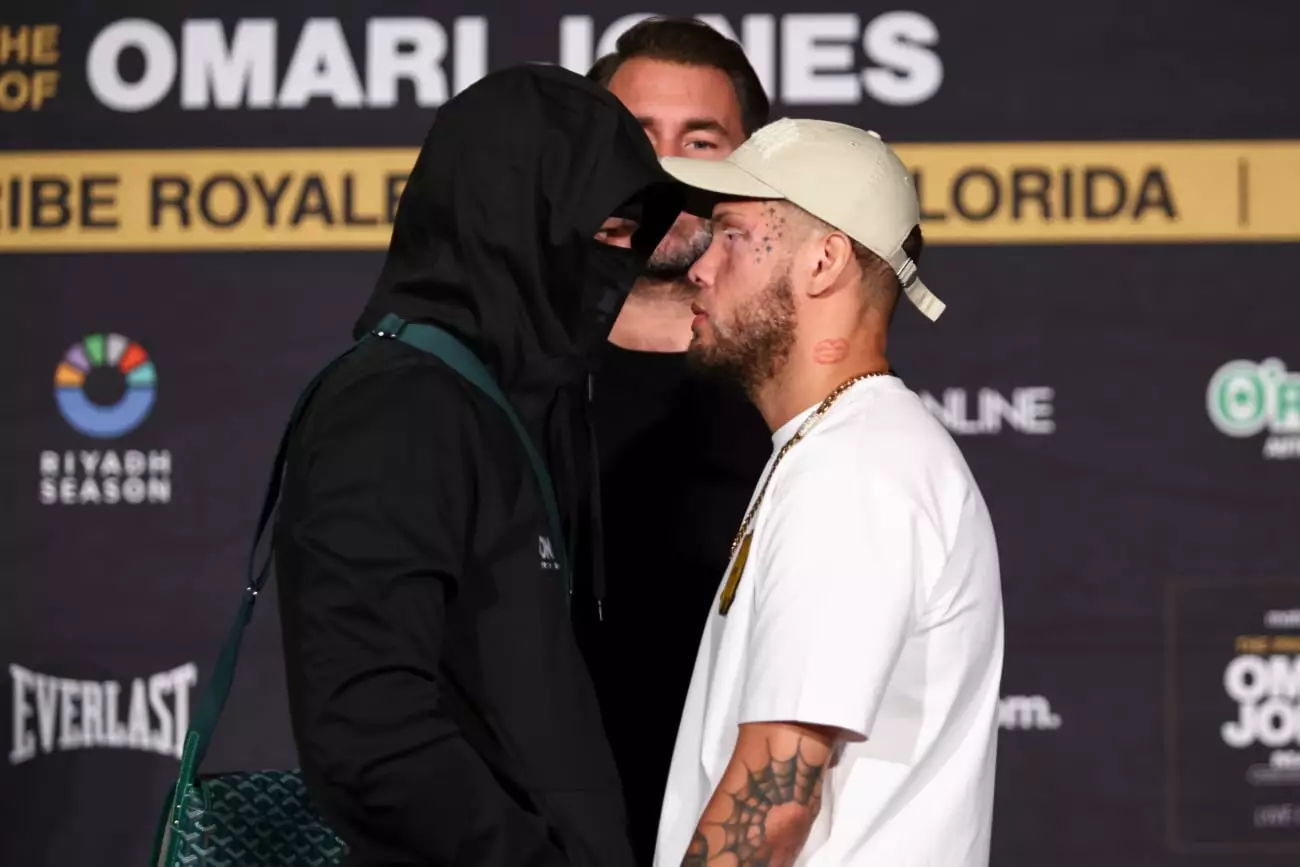In the volatile world of professional boxing, the concept of being a free agent can seem tantalizing. Fighters often view it as a ticket to maximize their earnings and shape their destinies. Edgar Berlanga, a super middleweight contender with a promising but erratic career, stands at this crossroads as he prepares to face Jonathan Gonzalez-Ortiz. While his exit from Matchroom could provide a new realm of opportunities, promoter Eddie Hearn warns that Berlanga might be making one of the worst decisions of his career. This cautionary tale reflects a broader discussion about the intricacies of autonomy in a sport as brutal and strategic as boxing.
Perceptions vs. Reality
Hearn’s skepticism arises from a critical analysis of Berlanga’s current standing and psychological outlook. The suspicion among some fans suggests that Berlanga believes he’s primed to sign a lucrative deal with TKO boxing, encouraged by the lofty aspirations that come from a superficial understanding of market values. In reality, Hearn believes that Berlanga’s expectations of securing astronomical paydays are misaligned with the realities of the sport. The boxer seems to be basking in the remnants of a substantial purse from his fight against Canelo Alvarez last September, a bout that highlighted both his potential and shortcomings, rather than the more nuanced realities of contract negotiations in a sport characterized by unpredictability.
Berlanga’s subpar performance against Alvarez—the fight that arguably elevated his profile without showcasing his ability—compounds the precariousness of his situation. An underwhelming showing left him grasping for a knockout in the final rounds, effectively demonstrating that the high-profile encounter was more about exposure than a testament to his abilities. This lack of competitive success raises significant questions about how future promoters will value him.
Weight and Future Competitiveness
One of the most pressing concerns in Berlanga’s career trajectory is his weight management. His failure to make weight for the Gonzalez-Ortiz fight and his noticeable struggle during the weigh-in before facing Canelo highlight an encroaching issue that could derail any ambitions of becoming a champion. Weight problems can plague a fighter’s career, significantly limiting future opportunities and forcing them into either unhealthy bargaining positions or premature retirement from specific weight classes. At 27, Berlanga’s size and inability to scale down effectively has left pundits questioning whether he has the requisite skills to transition effectively to light heavyweight—where fighters often possess both size and technical prowess far beyond the super middleweight category.
Hearn asserts that Berlanga needs to realistically assess his capabilities and marketability in this context. Knowing that premium matchups against known fighters, such as Caleb Plant and Jermall Charlo, may not yield the financial return that Berlanga envisions is crucial for his next steps. This stark reality forces Berlanga to reevaluate what success looks like beyond the glitz of pay-per-view figures.
The Psychological Weight of Expectations
One striking element in this scenario is the psychological toll of boxing promotions and expectations. Berlanga appears encumbered by a mindset that demands recognition and payday equivalency to his perceived worth rather than the merit he has demonstrated in the ring. Hearn intimates that Berlanga could benefit from a posture of humility and a focus on the upcoming fight against Gonzalez-Ortiz—one that could act as a springboard rather than a stumbling block. By choosing to fixate on what he believes he deserves rather than what he has achieved, Berlanga risks alienating potential promoters and stunting his career growth.
This internal struggle raises the question of how fighters can best navigate the complex interplay between self-worth and market value. For Berlanga, understanding that sports triumphs need to pair with strategic branding and relationship-building within the industry may prove foundational as he charts his next steps. Hearn’s words echo a universal sentiment for fighters: securing the best deal often requires a blend of talent, resilience, and the wisdom to recognize the significance of the journey, not just the destination.
Navigating the boxing landscape requires astuteness, both in and outside the ring. Berlanga’s future rests as much on his decisions in negotiations as on his performance in competition. As he embarks on this new chapter, only time will reveal whether his choice will uplift or undermine his boxing aspirations.

